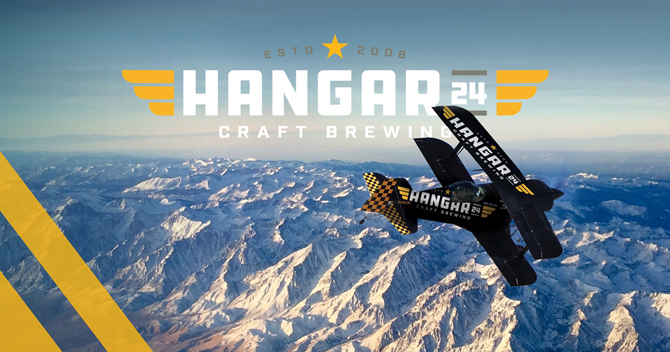
In the face of declining on- and off-premise retail sales, California’s Hangar 24 Brewing terminated about half of its production staff last Friday, brewery founder Ben Cook confirmed to Brewbound.
News of the layoffs was first reported Monday by The Full Pint, a California-based beer blog.
Speaking to Brewbound, Cook said the decision to lay off six of the company’s 13 brewery employees was aimed at “right-sizing” Hangar 24’s operations as it has outsourced more of its core beer volume to Gordon Biersch Brewing Company via an alternating proprietorship arrangement.
He added that the company let go of two sales reps about a month ago due to “declining sales” in those employees’ respective territories.
“It sucks to ever have to get rid of anyone,” he said, noting that the company now employs 80 people.
According to The Press-Enterprise newspaper, Hangar 24 had employed as many as 140 people as recently as April 2018. Many of those employees were part of Hangar 24’s now-defunct self-distribution division, and have since joined Co-Hop Beverage, a craft beer wholesaler helmed by former Hangar 24 general manager of sales and distribution Steve Garcia.
For his part, Cook said that shifting production of Hangar 24’s higher volume brands — Orange Wheat, Betty IPA, Aventura Mexican-style lager, and Peak Blonde — to Gordon Biersch will create “economies of scale” and allow the company to focus more attention on brewing innovative small batch offerings at its brewery taprooms in Redlands, California, and Lake Havasu City, Arizona.
“We’ll continue to shore up our foundation with the taprooms that create brand awareness and trial and produce healthy margins, while we battle it out on the wholesale distribution side and find that formula that works for us,” Cook said.
Cook said the brewery’s 2018 production figures were not “immediately available” as of press time, but estimates from industry trade group the Brewers Association indicate that Hangar 24’s production was flat in 2017, at 34,640 barrels, down from a peak of about 37,000 barrels in 2014.

Meanwhile, Cook said the 10-year-old craft brewery’s leadership team underwent an overhaul over the last three months. Previously, the company had promoted from within, but Cook claims that approach “didn’t end up working out.”
Instead, Hangar 24 hired Tim Diener as director of sales and Sofonyas Cherinet as director of brewing and supply chain.
Diener spent more than seven years working at Anheuser-Busch InBev, last serving as a senior manager of wholesaler equity agreement, and he was tapped to help Hangar 24 grow its outside sales.
“Tim’s from SoCal, so he knows this entire area really, really well,” Cook said. “He’s been running and in charge of entire regions of distributors. So he brings a lot of skill sets on how to drive execution within a distributor network.”
Cherinet, meanwhile, previously ran quality assurance programs at New Glarus and Karbach Brewing.
Hangar 24 also promoted Jason Wozniak to the newly created position of director of retail operations, and retained Todd Smith as vice president of finance.
Cook admitted that Hangar 24, like other regional breweries, has struggled with traditional three-tier distribution as competition has stiffened. He noted that the company has faced “challenges” obtaining share of mind from distributors, especially as the middle tier has consolidated.
The recent closure of its Los Angeles-based wholesaler Mission Beverage temporarily left Hangar 24 without a wholesale partner in the city, but the company has since signed with Beauchamp Distributing, Cook said. Additionally, Cook claimed the 2015 sale of M.E. Fox & Co. in the Bay Area continues to hamper the company’s sales in Northern California, where it now distributes through a group of wholesalers that includes Matagrano, Horizon Beverage Company, Markstein Sales Co. and Eagle Distributing Co.
“Some of the distributors are performing better and some worse,” Cook said.
Moving forward, Hangar 24 plans to offer a reduced portfolio of offerings to its distributors as it refocuses its sales efforts on flagship products, Cook said. He added that the company would pull back distribution of low-volume specialty releases, which will be offered at its taprooms.
“The idea is to take away all of the brands that create complexity without adding significant revenue,” he said.
Hangar 24’s growth plans for 2019 also include opening as many as two new taproom locations. Cook said the company is currently eyeing potential spaces in Los Angeles, Orange County and Inland Empire.
“We would like to open locations in all of those territories, but we want it to be something special,” he said. “We don’t just want to open up in a box. Both of our locations are on airports, so we’d love to stay on airports. But we’re open minded to not being on airports. It just has to be an experience for our customers.”
